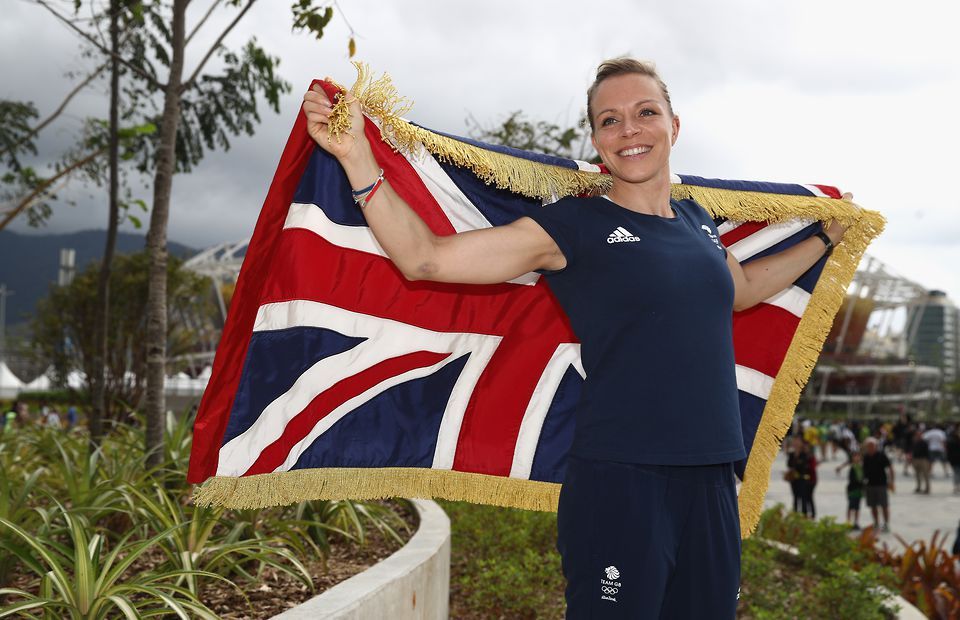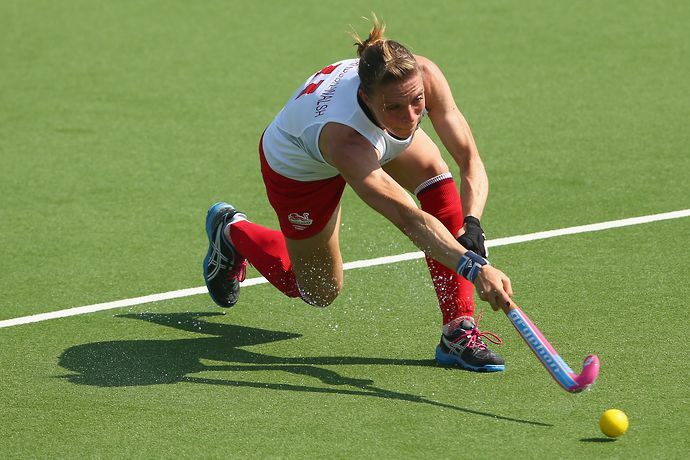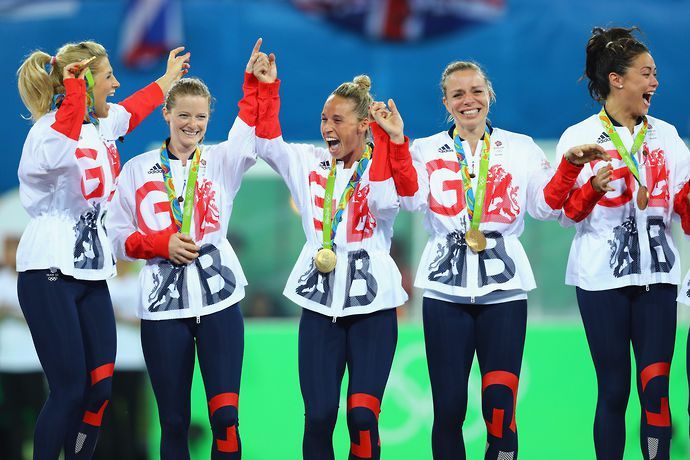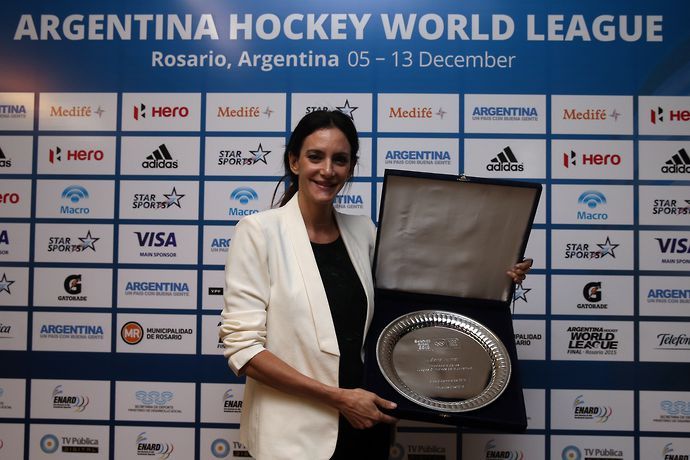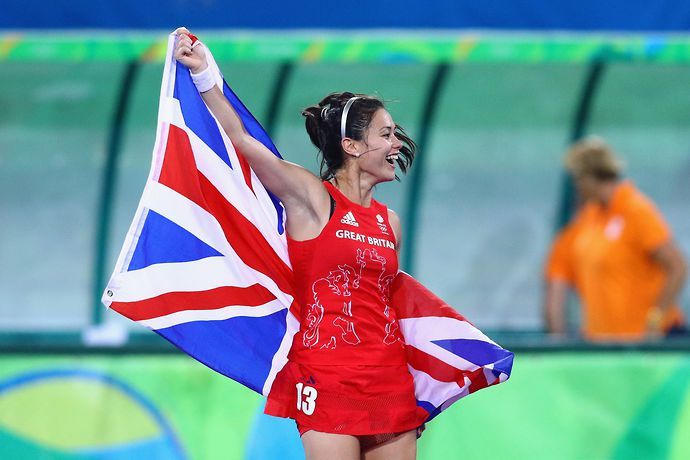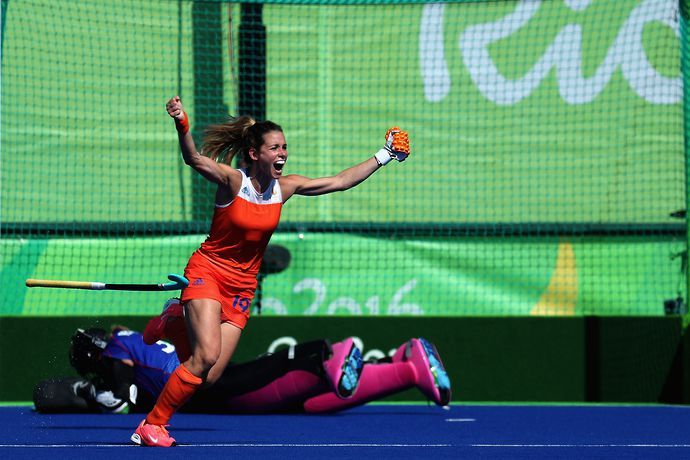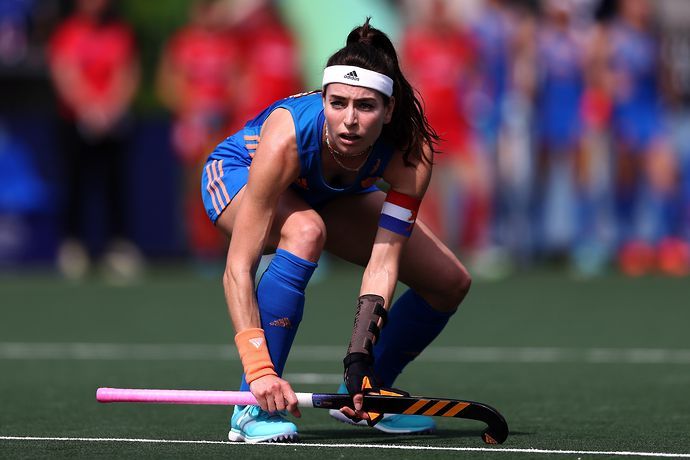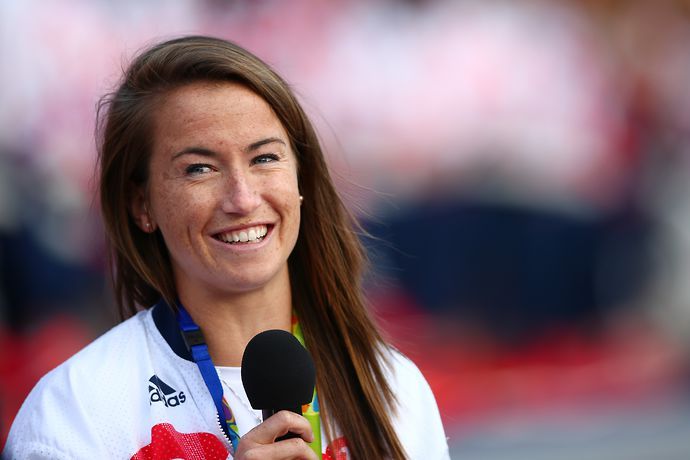The long-awaited Tokyo Olympics are finally underway and we can prepare to sit back and watch some of the world's most talented female athletes take to the biggest sporting stage to show what they're all about.
Field hockey has been a regular event on the Olympics roster since Antwerp 1920, but women had to wait another 60 years before they were able to compete at the Games. However, this isn't unique to hockey. In the majority of sports, women have always been on the backfoot – peddling that little bit harder to keep up with their male counterparts.
There are trailblazers in each sport though, who have created a legacy for the younger generation to follow and continue to chip away at the glass ceiling. This summer, Great Britain will be fielding a female majority roster, highlighting just how much women have ridden the wave of this upwards trajectory.
Former hockey star and Olympic gold medalist Kate Richardson-Walsh is just one of the successful international sportswomen to pave the way and inspire future generations.
The player-turned-coach recently appeared on the High Performance Podcast and discussed the matter of gender inequality in sport and the hurdles women have had to deal with to reach the elite level of their careers.
Overcoming hurdles
"We all have privilege, but we all will have moments where we are perhaps un-privileged or discriminated [against] in some way and for various reasons," Richardson-Walsh said.
"And actually just to use those moments as learnings and growth, which seems really hard and difficult at the time, but I think if we are able to do that, then I think it can be your greatest strength.
"And I think for us as a team in Rio, just bringing all of those different lived experiences and everything you've brought in your life to the table as individuals with unique strengths. I think that was one of the keys that really set us apart from our opposition."
Richardson-Walsh won her first gold medal at the Rio Olympics in 2016 as Team GB triumphed over the Netherlands to win their first field hockey Olympic title.
As well as fighting adversity, the Briton shed light on the stereotypes that are often associated with women in sport.
"We love to paint with a really broad brush because it's easy and it's comfortable and put people into boxes because that's easy for us. And actually, when we took those boxes away, when we released some of those stereotypes and just allowed people to be everything that they are and wanted to be, I think that's when people really thrived.
"I do some coaching with England U15s and U16s, now and again I get called in as a guest coach and I still see players there with fire in their eyes and hunger in their belly and they're going to do what it takes because they want it and then they want to be about high-performance. That's what you see in them."
Richardson-Walsh is just one of the many influential women in hockey to inspire the younger talent – here's a list of just five athletes who have helped the sport grow:
Luciana Aymar
Luciana Aymar was known for her speed, technique and athleticism on the field during her playing days.
She collected two silver and two bronze medals during her Olympic career – becoming just the second Argentine in history, male or female, to win four medals at the Games.
Aymar also boasts six Champions Cup golds and two World Cup titles with her country. She was officially named a Legend of Hockey by the International Hockey Federation in 2008.
She is undoubtedly one of the most decorated hockey players of her time and is a role model for many girls and young women looking to get into the sport.
Samantha Quek
Liverpool-born Sam Quek has not just been a trailblazer on the pitch, but she's an influential figure even in retirement.
The former defender won gold at Rio 2016 alongside Richardson-Walsh and also became European champion with Team GB the year before.
Since then, she has swapped her hockey stick for a microphone – presenting the likes of The NFL Show and providing live coverage for rugby union, football, and field hockey.
Quek's involvement in punditry and presenting has helped bridge the gap between men and women in media. She is arguably one of the main names to spearhead change in broadcasting across men's sport.
Ellen Hoog
Ellen Hoog is widely regarded as one of the best Dutch hockey players of her time. After first getting into the sport at just seven years of age, she made her senior domestic debut at 16 and broke into the Dutch national team a year later.
The former midfielder was known for her reverse shooting and in 2012 she became the first hockey player to decide a major championship match with a penalty shootout.
Hoog went on to win three European Championships, two World Cups, and back-to-back gold medals at Beijing 2008 and London 2012 with the Netherlands.
Eva de Goede
Like her compatriot Hoog, Eva de Goede is a massive talent for her country. She is currently still playing hockey at domestic level and joined Hoog in celebrating the Netherlands' Olympic successes in 2008 and 2012. De Goede was also part of the squad that won gold in Beijing in 2016.
The 32-year-old has made more than 200 appearances for her country and is known for being a full-package midfielder. De Goede was awarded the FIH Player of the Year award in 2018 and 2019 for her influential performances on the field.
The playmaker and Netherlands captain continues to set the bar high for women's hockey players and is doing a superb job of inspiring the next generation of Dutch internationals.
Maddie Hinch
Another member of the Team GB squad to make history in Rio de Janeiro is Maddie Hinch. Alongside her Olympic gold medal, Hinch boasts incredible individual accolades, including the FIH Best Goalkeeper in the World award for three consecutive years.
In the women's Olympic field hockey final in 2016, Hinch saved four penalties in their nervy shootout against two-time champions the Netherlands. Her performance in goal was viewed as the primary reason Team GB came away with their first ever gold medal in the tournament.




















